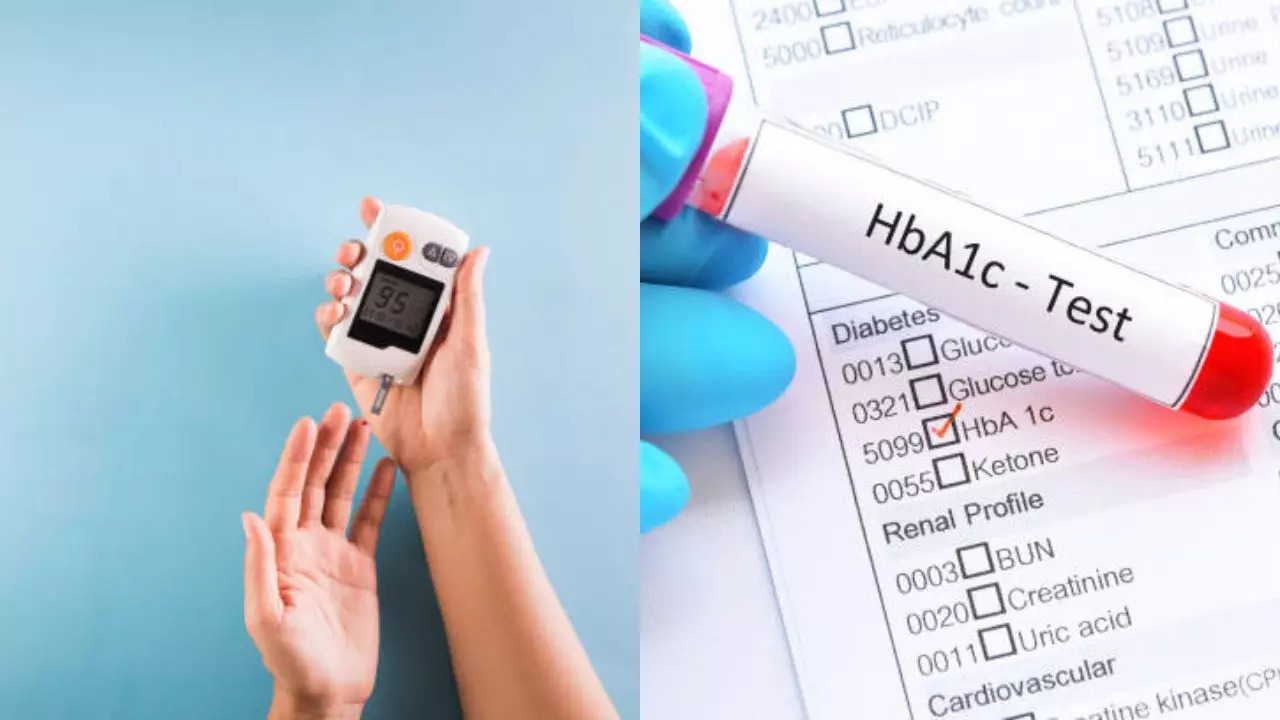Contents
-
news
-
Health
A1C blood sugar test for type 2 diabetes: What causes false results?
Testing A1C levels may give false or inaccurate results in some people. Doctors say that certain medications like steroids and cancer, or health conditions like anemia and high stress levels can cause your A1C level to become falsely elevated. Read on to know more.

Certain medications or health conditions can cause A1C to be falsely elevated, which can interfere with the test results, causing false or inaccurate results.
The A1C blood sugar test, which measures the average amount of glucose in your blood, may give false or inaccurate results in some people. The hemoglobin A1C test is a useful tool to help monitor glucose control or diagnose diabetes, but it is not foolproof.
According to experts, certain medications or health conditions can cause A1C to be falsely elevated, which can interfere with the test results, causing false or inaccurate results. This may include a false high result. If there is no correlation between your A1C test results and your glucose levels, doctors may suspect a false result.
What are the health conditions that can affect A1C results?
Some health conditions can cause your A1C test to falsely increase levels, including those that affect your red blood cells. Some of these include:
anemia
Anemia, or iron deficiency, which causes elevated A1C levels leading to symptoms such as weakness, fatigue, pale skin and shortness of breath, affects up to 30 percent of people worldwide. According to doctors, vegetarians and vegans are more prone to iron deficiency.
type 1 diabetes
If your A1C level remains high despite proper management, you may not have type 2 diabetes. Studies say as many as 12 percent of people with type 2 diabetes have latent autoimmune diabetes, or LADA, which the American Diabetes Association describes as a subtype of type 1 diabetes.
high stress levels
People with chronic high stress have increased blood sugar levels and insulin resistance.
Medication and Supplements
Doctors say there are several prescription medications that affect the A1C test, including medications that affect your hemoglobin and the lifespan of these red blood cells. Some of these are:
- ‘Steroids
- cancer drugs
- Treatment for hepatitis or HIV
Doctors say you need to make sure the doctor orders your A1C test with an accurate list of your medications and any supplements you regularly consume. Studies have shown that high levels of vitamin E and vitamin C falsely increase A1C levels – depending on whether the laboratory measures your A1C with electrophoresis – showing a false rise, or Chromatography, which may show false deficiency.
How is the A1C test calculated?,
The A1C test relies entirely on hemoglobin – a part of the red blood cell that carries oxygen throughout your body. When you have glucose in your blood, it sticks to hemoglobin—which stays there for about three months, around the time an average red blood cell lives.
The A1C test measures the average amount of glucose bound to hemoglobin over time. Because the A1C test measures glucose levels over a period of time, it provides more information about blood sugar than a single blood sugar test.
Calculated in percentage, the A1C level means:
- Less than 5.7 percent means you don’t have diabetes
- Between 5.7-6.4 percent indicate prediabetes
- More than 6.5 percent usually indicates type 2 diabetes (or type 1 diabetes).
Get the latest news live on Times Now with breaking news and top headlines from around the world.


